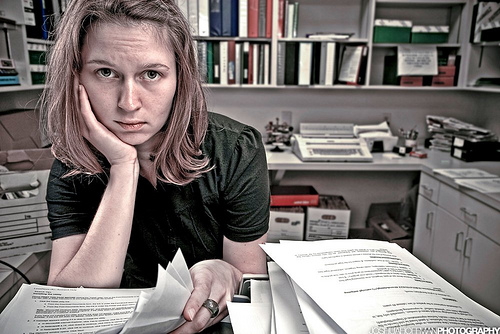Six ways to avoid wasting attendee time
 Raise your hand if every conference session you’ve ever attended was accurately described by its program blurb.
Raise your hand if every conference session you’ve ever attended was accurately described by its program blurb.
Anybody?
Anybody?
Bet your hand didn’t go up.
Wasting attendee time
When we have to sit through a session that bears little resemblance to its description, attendees waste time. We tend to blame the presenter. But, in my experience, it’s often conference producers who should be held responsible. Last week, Peggy Duncan sent me an example:
“I’m a conference speaker, and I am often put into an awkward situation. When I’m hired to do a seminar and the meeting organizers bill it as a workshop, people who do not use those words interchangeably are expecting something hands-on. I was recently hired to conduct a 1-hour SEMINAR at a conference on using the iPad for work, but the meeting planners are describing it as a workshop in their marketing. I’m trying to explain the difference, but their response is “Well, that’s just the terminology we use.” No, that’s like saying the color is red when it’s blue. These words are not interchangeable, and here’s [a blog post about] the difference.”
Language is important
People, language is important! A “workshop” implies that attendees will get experiential learning, while a “seminar” implies more of a traditional session, with a presenter talking most of the time. Big difference.
Unfortunately, incorrect terminology is just one of the ways that a session can turn out to be very different from its description.
For example, I’ve had a client write and publish a description of my session on the basis of a quick phone call, without requesting any additional input from me. Then there are the folks who take carefully written session descriptions and brutally rewrite them, sometimes to a point where I barely recognize them. Unsurprisingly, the subsequent renditions do not accurately portray what I was intending to do. Usually the first I know of this is when I surf the conference website and see I’m being billed to teach juggling notation (please don’t ask me to do that).
So how can we avoid session descriptions that avoid wasting attendee time? Here are six ways:
If you’re a conference producer:
- Be clear about what you want! Your presenter should be happy to help you figure out what that is—make the most of their expertise.
- Listen to your presenter! Yes, you have the right to ask for what you want. But if she says “I think X would be more effective”, or “That’s too much to cover in the time you’ve assigned”, “I can’t do that”, or any other responses that indicate that a mind-meld hasn’t yet taken place, then continue discussions and keep paying attention.
- Feel free to edit/change a session description. But, send your changes back for presenter review and final sign-off before publishing them!
If you’re a presenter:
- Don’t assume that the conference producer will accurately represent your session to attendees! Trust, but verify. Even if your client assures you that he will simply copy your description to their conference marketing, insist on reviewing it before it’s up on the web. And if they print it, double insist.
- Be persistent! Meeting producers are busy. They may consider a description change to be a minor detail to hazily delegate or put off. The squeaky wheel gets the grease.
- Be willing to go through several rounds of rewrites! Don’t give up until the session description accurately presents what you’re going to present.
Not-as-advertised sessions squander the time of hapless attendees and are far too common. Luckily, it’s easy to avoid wasting attendee time if you follow the above advice.

